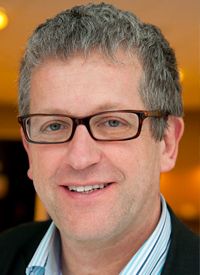Article
Nivolumab Improves Quality of Life in Patients with Esophageal/Gastroesophageal Cancer
Author(s):
January 15, 2021 - Patients with esophageal/gastroesophageal cancer treated with nivolumab had improved esophageal-specific and general quality of life, although trends were similar in those treated with placebo.
Eric Van Cutsem, MD, PhD

Patients with esophageal/gastroesophageal cancer treated with nivolumab (Opdivo) had improved esophageal-specific and general quality of life, although trends were similar in those treated with placebo, according to data presented at the virtual 2021 ASCO Gastrointestinal Cancers Symposium.
“It was previously reported that nivolumab is the first adjuvant therapy to provide a statistically significant and clinically meaningful improvement in disease-free survival versus a placebo in resected esophageal cancer/gastroesophageal junction cancer following neoadjuvant therapy,” said Eric Van Cutsem, MD, PhD, professor of internal medicine at the University of Leuven in Belgium and head of digestive oncology at the University Hospital Gasthuisberg in Leuven, during the virtual presentation.
The primary end point of this study was disease-free survival (DFS), with secondary end points of overall survival (OS) and OS rates at 1, 2 and 3 years. Researchers enrolled 794 patients, of whom 532 were randomly assigned nivolumab and 262 randomly assigned placebo.
To assess health-related quality of life, general- and disease-related symptoms, and functioning disease burden, researchers used FACT-E and EQ-5D-3L patient-reported outcome questionnaires. The questionaries were administered at baseline, every 4 weeks during the 12-month treatment, and at post-treatment follow-up visits. Completion rates for patient reports at baseline were 95%, and approximately 90% at 12 months.
At baseline, mean health-related quality of life scores were similar in both groups, and both groups saw an increase in these scores after 1 year.
Scores were similar in the nivolumab and placebo groups for the following: FACT-E total score (133.4 vs. 134.03, respectively), EQ-5D Visual Analogue Scale (70.4 vs. 69.1, respectively) and EQ-5D Utility Index (0.82 vs. 0.831, respectively). Researchers also observed similarities in scores for the esophageal cancer subscale (50.2 vs. 50.1).
Increases in these scores occurred from baseline through most time points through 49 weeks in both groups.
“Patients treated with [nivolumab] did not experience a reduction in [health-related] QoL, further supporting clinical data to demonstrate benefit and tolerability for adjuvant [nivolumab] in patients with resected [esophageal cancer/ gastroesophageal junction cancer],” researchers concluded in the abstract.
Reference
Van Cutsem E, Singh P, Cleary JM, et al. Checkmate 577: Health-related quality of life (HRQoL) in a randomized, double-blind phase III study of nivolumab (NIVO) versus placebo (PBO) as adjuvant treatment in patients (pts) with resected esophageal or gastroesophageal junction cancer (EC/GEJC). Presented at: 2021 ASCO Gastrointestinal Cancers Symposium; January 15-17, 2021; virtual. Abstract 167.








